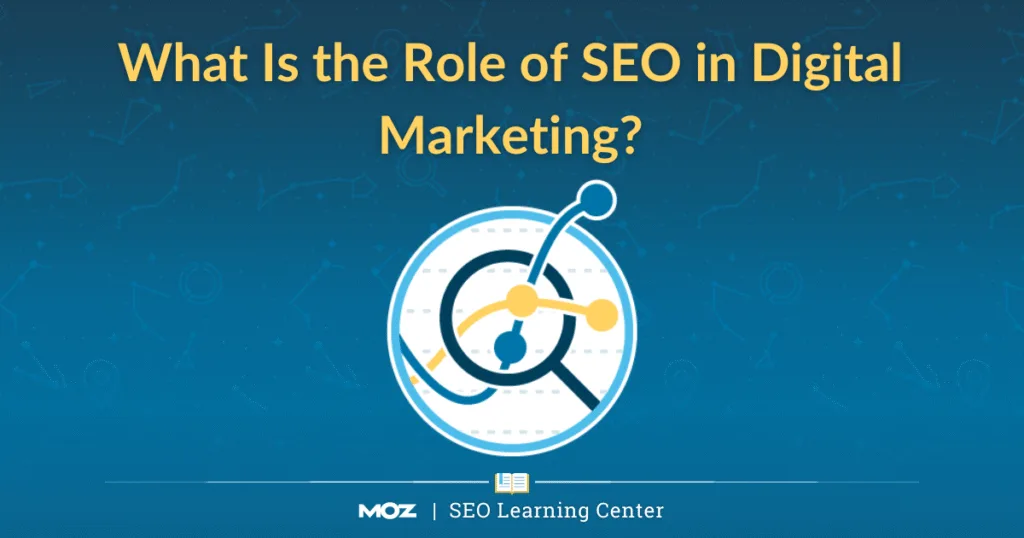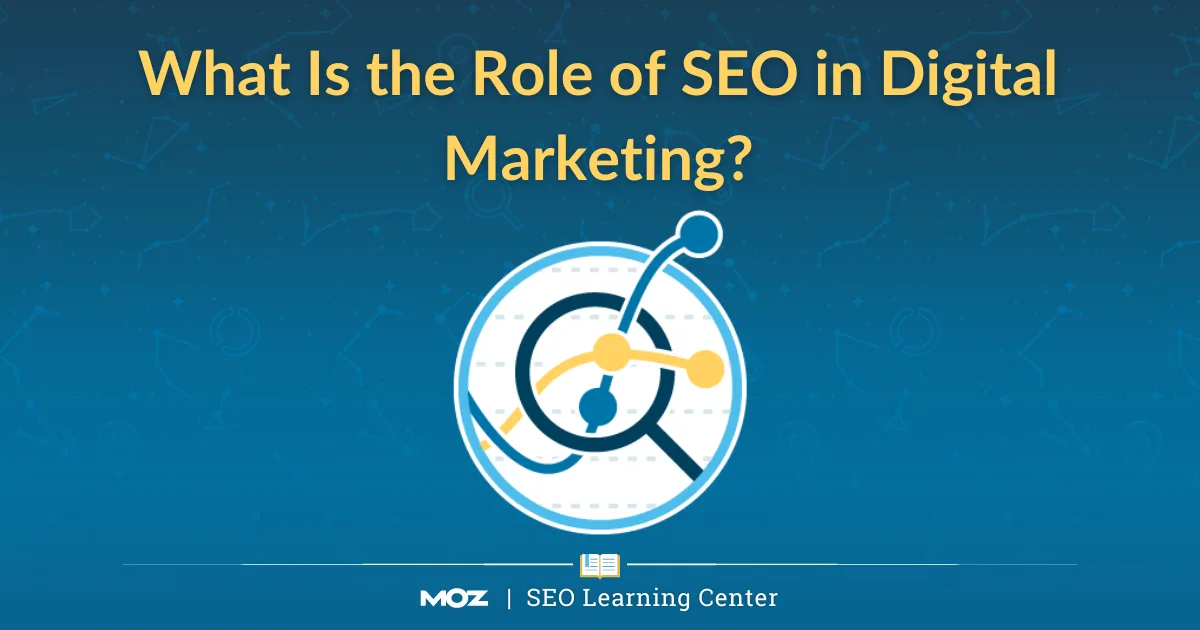What Is the Role of SEO in Digital Marketing?

What Is the Role of SEO in Digital Marketing?
In the rapidly evolving world of digital marketing, one term consistently stands out as a cornerstone of success: SEO, or Search Engine Optimization. But what exactly is SEO, and why does it play such a critical role in digital marketing strategies? Let’s dive into its importance and how it helps businesses thrive in the digital landscape.
At its core, SEO is the process of optimizing a website or online content to improve its visibility on search engines like Google, Bing, and Yahoo. When done effectively, SEO ensures that a website ranks higher in search engine results pages (SERPs) for relevant keywords, making it easier for potential customers to find your business.
SEO is not just about increasing traffic—it’s about attracting the right audience. By targeting specific keywords and user intent, SEO connects businesses with customers who are actively searching for their products, services, or information.
- Increased Visibility and Web Traffic
One of the primary goals of digital marketing is to drive traffic to your website, and SEO plays a huge role in achieving that. When your website ranks higher on SERPs, it becomes more visible to users. This increased visibility translates into higher click-through rates and more potential customers visiting your site. - Cost-Effectiveness
Compared to paid advertising, SEO is a cost-effective way to build your online presence. While it may take time to see results, the long-term benefits of organic traffic are worth the investment. Unlike paid ads, which stop generating traffic once the budget runs out, a well-optimized website continues to attract visitors over time. - Builds Credibility and Trust
Ranking high on search engines signals to users that your website is trustworthy and authoritative. SEO helps build this credibility by improving site performance, creating high-quality content, and earning backlinks from reputable sources. A strong SEO strategy can position your brand as a leader in your industry. - Improves User Experience
SEO isn’t just about pleasing search engines—it’s also about enhancing the user experience. Search engines prioritize websites that are fast, mobile-friendly, and easy to navigate. By optimizing your site, you’re not only improving your rankings but also making it more accessible and user-friendly. - Supports Other Marketing Strategies
SEO works hand-in-hand with other digital marketing efforts. Whether you’re running a content marketing campaign, focusing on social media, or investing in paid advertising, SEO ensures that your overall strategy is cohesive and effective. For example, a blog post optimized with the right keywords can attract organic traffic and be shared across social platforms for even greater reach. - Keeps You Competitive
The digital marketplace is crowded, and businesses that ignore SEO risk being overshadowed by competitors. A strong SEO strategy ensures that your brand stays competitive and continues to attract leads, even in a saturated market.
It’s important to note that SEO isn’t a one-time effort—it’s an ongoing process. Search engine algorithms are constantly evolving, and businesses need to stay updated to maintain their rankings. This means regularly updating content, monitoring performance, and adapting to changes in user behavior and search engine guidelines.
In today’s digital-first world, SEO is no longer optional—it’s a necessity. It serves as the foundation of any successful digital marketing strategy, helping businesses increase visibility, attract the right audience, and achieve long-term growth. By investing in SEO, you’re not just optimizing your website for search engines—you’re setting your business up for sustained success in the competitive digital landscape.
Whether you’re a small business owner or a marketing professional, understanding the role of SEO and implementing it effectively can make all the difference in achieving your goals. So, if you haven’t already, now’s the time to prioritize SEO in your digital marketing efforts.

